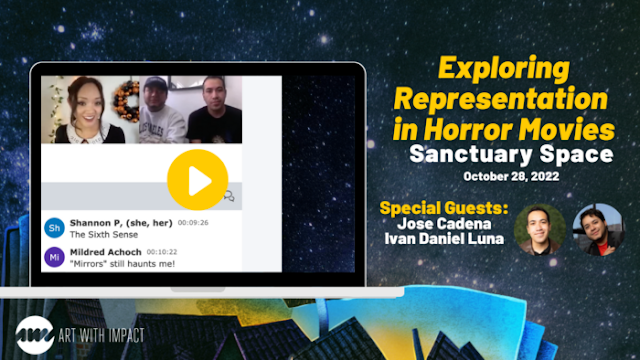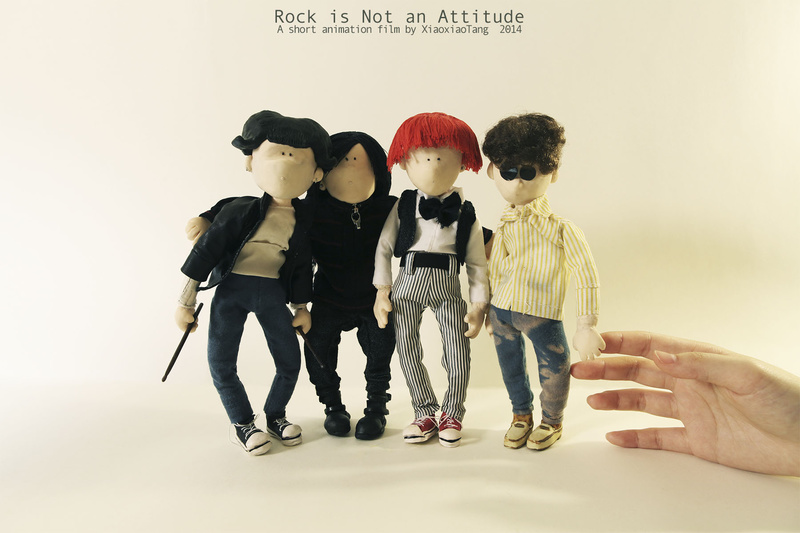ROFFEKE: In your writer statement, you say: “If the first two acts of this story feel tedious at times, and make the reader/audience deeply uncomfortable during others – Good.” Yes, there are definitely some cringe moments in the screenplay, which make the ending like a breath of fresh air after the harrowing claustrophobic atmosphere. Did you set out to make the reader uncomfortable or did that aspect just naturally appear as you were writing? Did the darker elements appear during the manic episode you mentioned or did you add them in later?
JESSE DORIAN: Okay, this is a great question. I’m pretty sure that that part of my writer statement is just my way of irritably responding to some of the negative feedback I had received from a few festivals for “SVEN,” regarding its first two acts. And as far as setting out to make the reader uncomfortable — no, actually. I don’t set out to make the reader uncomfortable, intentionally. All I’m setting out to do really, is tell a story, regardless of if the reader/audience becomes uncomfortable or not.
I find that both readers and viewers will be able to sense if a writer has that sort of an agenda. I find that what makes a lot of “cringe” moments or elements in a story, is when those particular moments are either noticeably disingenuous… or, those particular moments are noticeably relatable to the audience.
The other part of this question that I find great — also because you’re the first to ever ask it — “Did the darker elements appear during the manic episode… or did you add them in later?” And I think you sorta hit the nail on the head with what that question is suggesting, and the answer is — Yes. 100%. Because I wasn’t necessarily on the right path toward recovery from the manic state I was in at the time, when I started the very first draft of “SVEN” back in 2012. And I believe that — for me, being in that state of mind, is absolutely what pressed this story forward into the uncomfortably dark places that the central character must persevere through.
Being in a manic state at the time, made me draw the conclusion that maybe — it’s okay to take the audience, psychologically, to some new places that no other story or film prior has ever taken them… it’s okay to trigger the audience; challenge them. As long as I’m not disrespecting the intelligence of the audience, or underestimating their intellect, then it’s okay to inadvertently toy with them.
For quite a while now, my philosophy as a screenwriter is: no matter how smart I may think I am, the audience is always smarter.
ROFFEKE: In your bio, you mention a gothpop music project. Share a little more about that?
JESSE DORIAN: That would be my solo music project Imitate Invertebrate. It’s been a work-in-progress for about 6 years now. What’s thoroughly frustrating, is that I’ve done so much — and worked so hard — on this music project but have publicly released so little.
Hopefully, that’ll change soon because I plan to return to Imitate Invertebrate in early 2023, to begin completion on all, if not most of the 22+ songs that I’ve started writing and recording over the past several years. Fans of the genre will notice within no time that I’m a huge fan of industrial metal and industrial rock/pop from the 1980s and 1990s.
Imitate Invertebrate is inspired; its a contemporary throwback project but it’s definitely its own thing. Probably because working on music is therapeutic for me in a way that film is not, Imitate Invertebrate is the only project I have that really makes any sense to me.
ROFFEKE: The “locked in a room” trope is common in thrillers and horrors but you give it a new spin, largely due to the unique characters. What inspired you to come up with these two main characters? How much time did you spend on character development or did the characters appear “fully formed”?
JESSE DORIAN: The “locked in a room” trope is a concept mostly reserved for filmmakers with no money, and few resources. It’s a great trope though, that can really test the strengths and range of a writer/filmmaker’s creativity, without necessarily exposing their limitations.
I recently did an extensive in-depth
interview with Festigious Los Angeles about the origins of “SVEN” as an original concept. The two main characters originated from a no-budget unscripted internet series that I had created back in 2008 (which was also the very first time I applied the “locked in a room” setting).
ROFFEKE: A ROFFEKE interviewee said: “I think it’s important to address the fact that a lot of artists, struggling or not, are not mentally healthy and have problems that they are actively dealing with though their chosen medium…what happens when you sacrifice yourself for something and it works? What about the moment after? What about when it doesn’t work? What are we really doing to ourselves? Why are we doing this to ourselves?” Please comment on part or all of this, answer one or all the questions asked, give your take on the views expressed, etc.
JESSE DORIAN: Well, I see exactly what they’re tapping into with those questions, and they’re certainly not wrong. So, okay. I’m probably going to go on a rant — and hopefully, somewhere along the tirade, at least several of these questions are reasonably answered.
As everyone already knows, a lot of artists are not mentally healthy. The outright neglect of my mental health has cost me a lot of my friendships throughout the years, while I was doing my best to remain hyper-focused on the completion of certain projects.
When I first started writing the first draft of the feature script for “SVEN” in December 2012, I was a huge substance abuser at that time; arguably, at my absolute worst. I don’t think I had ever openly admitted that I sorta believed that I needed to be intoxicated to write, but also — I hadn’t yet been diagnosed ADD/ADHD.
It wasn’t until around the time I turned 30 and I was finally diagnosed, that I realized that the number one cause of my depression during adulthood was due to my inability to focus; my inability to complete the same ambitious projects that I could so easily begin.
Focus wasn’t necessarily always a problem for me when I was a teenager but as I became an adult, my attention span began to work against me, and before I knew it — even the things that I loved to do such as write, and work on music — I no longer had the attention span to really carry those projects out to completion. It was really hard for me to get anything done. And since I had always used alcohol as a way to coexist socially, that was really all I felt that I had at the time to give me enough drive to express myself creatively.
For some reason, I had become convinced that achieving something that mattered, was simply grounded in how motivated someone either was, or was not. It had never occurred to me back then, why I was really purchasing prescription stimulants from acquaintances of mine who had prescriptions, throughout my early twenties. And not until many years after my manic episode, would I come to discover that I, in fact, DID need to be on prescription stimulants — daily; in order to be a fully-functioning part of society.
Once I was prescribed, all urges to abuse alcohol and other habit-forming drugs went away entirely. That was over 6 years ago.
However, I’ve also come to learn that artists or writers or whatever — let’s just say "creative people,” do not necessarily have to sacrifice their mental health, or even their sobriety to be just as good creatively as if they were using substance as a creative force, by abusing it — maybe those creative people who believe they need to be in a place of poor mental wellness just haven’t quite hit rock bottom yet…
But I’m not going to lie — having the prior life experience that a substance abuser has had, or having the life experience of a person that is not quite “mentally healthy,” is in and of itself, life experience — that surely doesn’t hurt to already have. It certainly helps to have it. Especially, if they are in fact, a creative force. And yeah, in the end… sometimes, it’s perfectly okay to just feel something organically.
And sorta touching back onto your earlier questions, regarding dark themes and the influence that a manic episode could have on the tone or atmosphere of a finished project… the most recent completed screenplay of mine, is called “Morituriosis.”
I completed the first draft of “Morituriosis” in 2016 but it was the first screenplay that I had ever written entirely while sober. Personally, I think it’s the darkest thing I’ve ever written. “Morituriosis” takes you straight to Hell; it’s my most genuine attempt at assaulting the senses of the entire audience, inspired by a real life experience I had, while I was at my most vulnerable. With “Morituriosis,” I’m making the audience go somewhere that they really don’t want to go, for nearly the film’s entire runtime. I see “Morituriosis” as my nihilistic show stopper. And it should come as no surprise that — mentally, I was in a reasonably good place when I wrote it. I wrote it at a time right after a pivotal moment in my life; a moment when I made a personal breakthrough. It was at a time when I was finally able to make some kind of peace with myself as a person.
The reason I bring up my screenplay “Morituriosis,” is because I was able to use the memories of all of my horrible life experiences with substance abuse, all leading up to one major horrible life experience I had, that would become the sole inspiration for the main theme in “Morituriosis” — without actually having to neglect my mental health. And it’s because my mental health was finally in a good place, and I was properly medicated for ADD — I was focused, and therefore able to coherently tell the dark story I was wanting to tell. But I wasn’t intoxicated when I wrote it. Because I didn’t need to be.
ROFFEKE: Screenwriting: What has your screenwriting journey been like? What came first: the screenwriting or the acting/editing/directing? How do your skills as an actor, editor and director influence and enrich your screenwriting?
JESSE DORIAN: The screenwriting came first. I completed my first screenplay over 20 years ago. I was 15 years-old. Because screenwriting was what I had consistently worked at, even though it wasn’t what I was most passionate about — that has always been acting — screenwriting is gradually what I became the most skilled at.
Unfortunately, I went most of my life being too afraid to take acting as seriously as I had always wanted to. Plus, I’ve also always been aware of how easy it is to fail as an actor who can’t write. It’s sorta like failing as a singer that can’t write — it’s too easy.
I actually starred-in a feature film that I also wrote and directed back in 2011 that was never technically released. Currently, there is a two-hour rough cut of the film though. Long story short, that’s when I realized exactly how much I truly loved acting, and much preferred it to screenwriting and directing. Sadly though, I haven’t attempted to professionally act in anything else since. But that’s all about to change.
The return to acting is going to become my top priority within 2023-2024.
Synopsis of "Sven"
"A 6-foot tall humanoid-primate from the Amazon rainforest, called a "chilamasman," the last of its species - an an intense, deeply troubled, mentally unstable American adult male are both held captive by a U.S. government-funded program performing a psychological experiment, forcing the two of them to live together inside a single, maximum security containment habitat - and replica - of a modern day condominium apartment."
Check out Jesse Dorian's Linktree HERE

































































































































































































